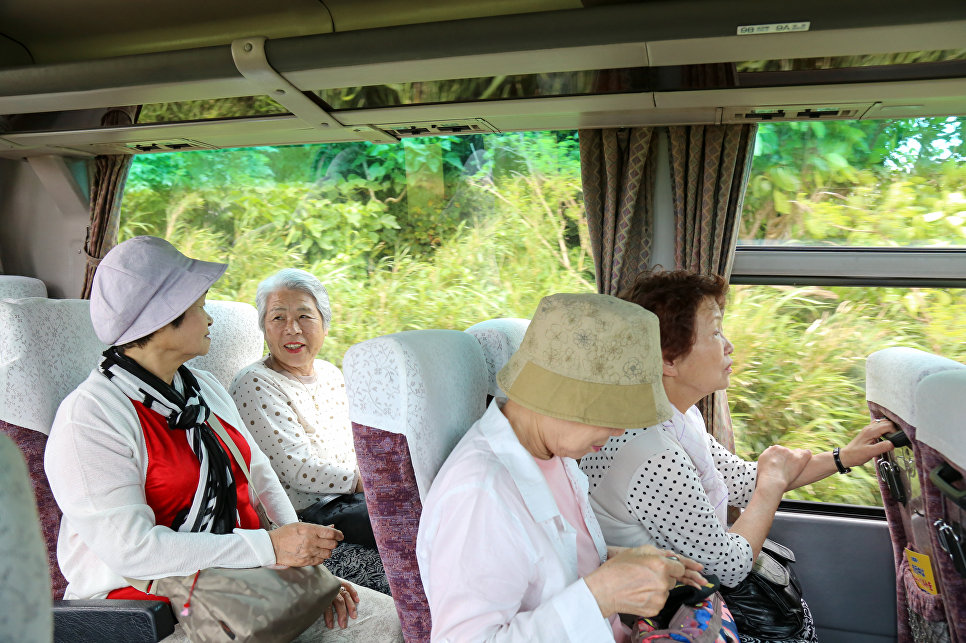Age of the "second life"
The Japanese pension system is difficult to understand primarily because it has too many deviations from the general rule, which makes it flexible and "built in” the individual life plan of those who, as now fashionable to speak in Japan, have entered the time of the "second life".
The deeper the immersion in details of the Japanese pension system, the less obvious is the answer to the question of what age is considered as a retirement age. The closest to the truth definition, perhaps, can be formulated as follows: "Anyone has the right to retire at 60, but will be able to receive full pension benefits only at the age of 65".
Japan is the country of an "aging" society, when fewer children are born and the life expectancy of older generation is significantly increasing. Ultimately, this leads to the fact that the tax burden laid on working people, from which pensions and subsidies for health insurance are accrued, is increasing every year. There is a tendency of the quality of life changing, more and more elderly people feel good enough to continue working or finding a new field of activity. The state is interested in ensuring that pensioners remain in a working mode as long as possible and replenish the budget with taxes.
"The role of the state is to regulate these processes. First of all, an employer cannot pension off a person who has not yet reached the age of 60. On the contrary, he is obligated either to raise the retirement age to 65 years or to retain a 60-year old employee up to the age of 65 or as long as the employer is willing to work. The enterprises are also free of setting the retirement age at all and may decide each case individually with every employee. There is also a system of subsidies that the state pays to an employer of workers over 65 years old", told Atsushi Kawai, an employee of Retirement Unit of the Ministry of Health, Labor and Welfare.
Pensioners: some statistics
According to the latest statistics data by the Ministry of National Affairs, the average life expectancy in Japan is 80.89 years for men, 87.14 years for women. The Japanese quite rightly believe that after their retirement they still have a third of their lives ahead of them.
They call the time after retirement a "second life", in which, unlike the "first", all debts to society in the form of obligation to work, educate and support children have already been paid, and one can spend time and money to what he really wanted to do.
The number of elderly people over 65 years in the country is constantly growing. In 2017, with a total population reduction by 210 thousand people, the army of pensioners was replenished with 570 thousand.
In the Japanese society, the proportion of people over 65 is 27.7%. This is the highest rate in the world. And the number of those who are over 90, for the first time for the whole period of conducting such statistics amounted to two million people. The total population of Japan is 126 million people.
The army of working pensioners totals 7.7 million people. The share of pensioners among the working population is 11.9%. However, most of them, three out of four, prefer a contract system of work in the staff. According to polls, most of retired people said that they prefer to work when it was convenient to them. Japan is in the first place in the world in terms of pensioner share among the working population.
The average level of savings per one pensioner family is 23.94 million yen (more than 200 thousand dollars).
The pension fund in Japan today is 55 trillion yen (about $500 billion), and a significant part of it (about $350 billion) is paid by workers and enterprises. At the same time, it is scarce: 12.5 trillion yen (about 110 billion dollars) is contributed by the state from the budget.
How to increase the retirement age with no harm?
"In fact, the reform on the retirement-age increase has taken 25 year in Japan. The process goes in stages: the age at which a person can count on a full pension increases from 60 years, as it has been up to the year of 2000, to 65 years, when the reform is fully completed in 2025. However, this does not mean that if he retires earlier, for example, at 62, he will not receive anything. The system is built in such a way that by retiring before the age of 65, a person loses a significant amount not to be compensated or restored”, Kawai explains.
The intricacies of Japanese pension system are most clearly seen in pictures and graphs. If a person retires at 60, he agrees that his pension will be reduced by 30%, and, for example, by retiring at the age of 63, he will lose 12%. A pensioner will be able to get his pension in full at the age of 65. That is why this age is often called a pension age in Japan.
Besides, if an elderly person continues to work on without going on pension, then in a year the allowance to his pension payments will make 8.4%, and at retirement at 70 its size will increase by 42%.
Two-storied pension, a housewives’ "inheritance"
In Japan, a two-tier system of pension savings and payments has been adopted. The basic level exists for individual entrepreneurs, students and all who cannot be referred to a large group of hired employees of Japanese enterprises and government agencies. With the payment of 16.49 thousand yen per month (about 150 dollars) to the age of 60, a person from 65 years of age can expect to get 65,000 yen (about $600) per month subject to a maximum of 40 years of experience.
The second pension level entirely depends on income. Payments of 18.3% from the salary are usually made by the employer by deducting the necessary amount from the employee salary. It is necessary to pay it up to the actual retirement, regardless of age, but it is available from the age of 65. The size of this pension depends on income, but on average it is around 154 thousand yen (about 1500 thousand dollars) a month.
A distinctive feature of the Japanese pension system is the right of housewives not only to receive a pension, but also not to pay monthly pension contributions. It is believed by default that since the era of rapid economic growth, married Japanese women mainly engaged in household and children, support their husbands, while they all bring prosperity of the company, factory or state organization.
The monthly pension, for which the housewife is entitled after reaching the age of 65, is equal to the basic level of 65,000 yen. Moreover, after the death of her spouse, she continues to receive a part of his "second-tier" pension, which is calculated at the rate of 18.3% of the salary.
It is in its own way everywhere
It would seem that the Japanese system is built in such a way that everyone should strive to work as long as possible. However, in reality this is far from being the case.
"The issue of keeping a working place, as well as the salary size after reaching the age of 60 or 65, and the conditions for continuing work may vary depending on the company’s rule. In some companies the position and remuneration may be kept in full, in others a person will be transferred to a lower position with a lower salary, there is no single rule," Kawai says.
As RIA Novosti managed to find out, the retirement age largely depends on working conditions upon reaching the age of 60 or 65, is different in every company.
"I am now 58. I will immediately retire in two years. Yes, I go to the mountains, I feel great and am full of energy. I am currently a president of the company. If the conditions did not change, of course, I would be ready to stay on this position for few more years, but the rules in the company are such that after 60 years, my salary and long-service bonus will both be sharply reduced (editor’s comment: in Japan it can be several hundred thousand dollars). So there is no point for me to keep the place any longer. I will retire and figure out what I do next," said the head of the company in a large media holding.
A leading musician of one of the largest orchestras in Japan says that in ordinary companies it is often more beneficial to keep working after the age of 65, but not in the orchestra.
"A musician can stay on his workplace upon reaching age of 65 by passing through the commission, which, as a rule, is of a formal nature. He often keeps his salary, or remuneration is made through the internal compensations and payments. But at the age of 65 there are no exceptions: he is obligated to retire and give his place to another. Six months prior a competition for his replacement is scheduled, and strictly at 65 he is obliged to leave the orchestra," he explained.
How much can we work?
The Japanese are known as a nation of workaholics. As a rule, this means long working hours, short holidays, as well as the so-called "death from excessive labor", karosi, a term that has become international to the horror and shame of the Japanese themselves.
According to public opinion polls, the desire to work does not let the Japanese go even at a very old age.
According to a survey of the Ministry of Health, Labor and Welfare, which involved three thousand people, only 11.8% of respondents are ready to retire at 60 years of age, and 21.4% at 65, 23.6% at 70, and 12.8% people are ready to work after 75. But the most popular answer (29.5%) is that they want to work as long as they are able to. As the Ministry concludes, about 70% of those who are willing to work after the age of 65.
"The state is working hard to help older people find themselves and their place after retirement. There is a job search service for people of retirement age. Not only salary but the feeling of being needed and useful is very important in the "second life", - concludes Kawai.
Source: RIA Novosti https://ria.ru/world/20180820/1526830075.html
Age of the "second life"
The Japanese pension system is difficult to understand primarily because it has too many deviations from the general rule, which makes it flexible and "built in” the individual life plan of those who, as now fashionable to speak in Japan, have entered the time of the "second life".
The deeper the immersion in details of the Japanese pension system, the less obvious is the answer to the question of what age is considered as a retirement age. The closest to the truth definition, perhaps, can be formulated as follows: "Anyone has the right to retire at 60, but will be able to receive full pension benefits only at the age of 65".
Japan is the country of an "aging" society, when fewer children are born and the life expectancy of older generation is significantly increasing. Ultimately, this leads to the fact that the tax burden laid on working people, from which pensions and subsidies for health insurance are accrued, is increasing every year. There is a tendency of the quality of life changing, more and more elderly people feel good enough to continue working or finding a new field of activity. The state is interested in ensuring that pensioners remain in a working mode as long as possible and replenish the budget with taxes.
"The role of the state is to regulate these processes. First of all, an employer cannot pension off a person who has not yet reached the age of 60. On the contrary, he is obligated either to raise the retirement age to 65 years or to retain a 60-year old employee up to the age of 65 or as long as the employer is willing to work. The enterprises are also free of setting the retirement age at all and may decide each case individually with every employee. There is also a system of subsidies that the state pays to an employer of workers over 65 years old", told Atsushi Kawai, an employee of Retirement Unit of the Ministry of Health, Labor and Welfare.
Pensioners: some statistics
According to the latest statistics data by the Ministry of National Affairs, the average life expectancy in Japan is 80.89 years for men, 87.14 years for women. The Japanese quite rightly believe that after their retirement they still have a third of their lives ahead of them.
They call the time after retirement a "second life", in which, unlike the "first", all debts to society in the form of obligation to work, educate and support children have already been paid, and one can spend time and money to what he really wanted to do.
The number of elderly people over 65 years in the country is constantly growing. In 2017, with a total population reduction by 210 thousand people, the army of pensioners was replenished with 570 thousand.
In the Japanese society, the proportion of people over 65 is 27.7%. This is the highest rate in the world. And the number of those who are over 90, for the first time for the whole period of conducting such statistics amounted to two million people. The total population of Japan is 126 million people.
The army of working pensioners totals 7.7 million people. The share of pensioners among the working population is 11.9%. However, most of them, three out of four, prefer a contract system of work in the staff. According to polls, most of retired people said that they prefer to work when it was convenient to them. Japan is in the first place in the world in terms of pensioner share among the working population.
The average level of savings per one pensioner family is 23.94 million yen (more than 200 thousand dollars).
The pension fund in Japan today is 55 trillion yen (about $500 billion), and a significant part of it (about $350 billion) is paid by workers and enterprises. At the same time, it is scarce: 12.5 trillion yen (about 110 billion dollars) is contributed by the state from the budget.
How to increase the retirement age with no harm?
"In fact, the reform on the retirement-age increase has taken 25 year in Japan. The process goes in stages: the age at which a person can count on a full pension increases from 60 years, as it has been up to the year of 2000, to 65 years, when the reform is fully completed in 2025. However, this does not mean that if he retires earlier, for example, at 62, he will not receive anything. The system is built in such a way that by retiring before the age of 65, a person loses a significant amount not to be compensated or restored”, Kawai explains.
The intricacies of Japanese pension system are most clearly seen in pictures and graphs. If a person retires at 60, he agrees that his pension will be reduced by 30%, and, for example, by retiring at the age of 63, he will lose 12%. A pensioner will be able to get his pension in full at the age of 65. That is why this age is often called a pension age in Japan.
Besides, if an elderly person continues to work on without going on pension, then in a year the allowance to his pension payments will make 8.4%, and at retirement at 70 its size will increase by 42%.
Two-storied pension, a housewives’ "inheritance"
In Japan, a two-tier system of pension savings and payments has been adopted. The basic level exists for individual entrepreneurs, students and all who cannot be referred to a large group of hired employees of Japanese enterprises and government agencies. With the payment of 16.49 thousand yen per month (about 150 dollars) to the age of 60, a person from 65 years of age can expect to get 65,000 yen (about $600) per month subject to a maximum of 40 years of experience.
The second pension level entirely depends on income. Payments of 18.3% from the salary are usually made by the employer by deducting the necessary amount from the employee salary. It is necessary to pay it up to the actual retirement, regardless of age, but it is available from the age of 65. The size of this pension depends on income, but on average it is around 154 thousand yen (about 1500 thousand dollars) a month.
A distinctive feature of the Japanese pension system is the right of housewives not only to receive a pension, but also not to pay monthly pension contributions. It is believed by default that since the era of rapid economic growth, married Japanese women mainly engaged in household and children, support their husbands, while they all bring prosperity of the company, factory or state organization.
The monthly pension, for which the housewife is entitled after reaching the age of 65, is equal to the basic level of 65,000 yen. Moreover, after the death of her spouse, she continues to receive a part of his "second-tier" pension, which is calculated at the rate of 18.3% of the salary.
It is in its own way everywhere
It would seem that the Japanese system is built in such a way that everyone should strive to work as long as possible. However, in reality this is far from being the case.
"The issue of keeping a working place, as well as the salary size after reaching the age of 60 or 65, and the conditions for continuing work may vary depending on the company’s rule. In some companies the position and remuneration may be kept in full, in others a person will be transferred to a lower position with a lower salary, there is no single rule," Kawai says.
As RIA Novosti managed to find out, the retirement age largely depends on working conditions upon reaching the age of 60 or 65, is different in every company.
"I am now 58. I will immediately retire in two years. Yes, I go to the mountains, I feel great and am full of energy. I am currently a president of the company. If the conditions did not change, of course, I would be ready to stay on this position for few more years, but the rules in the company are such that after 60 years, my salary and long-service bonus will both be sharply reduced (editor’s comment: in Japan it can be several hundred thousand dollars). So there is no point for me to keep the place any longer. I will retire and figure out what I do next," said the head of the company in a large media holding.
A leading musician of one of the largest orchestras in Japan says that in ordinary companies it is often more beneficial to keep working after the age of 65, but not in the orchestra.
"A musician can stay on his workplace upon reaching age of 65 by passing through the commission, which, as a rule, is of a formal nature. He often keeps his salary, or remuneration is made through the internal compensations and payments. But at the age of 65 there are no exceptions: he is obligated to retire and give his place to another. Six months prior a competition for his replacement is scheduled, and strictly at 65 he is obliged to leave the orchestra," he explained.
How much can we work?
The Japanese are known as a nation of workaholics. As a rule, this means long working hours, short holidays, as well as the so-called "death from excessive labor", karosi, a term that has become international to the horror and shame of the Japanese themselves.
According to public opinion polls, the desire to work does not let the Japanese go even at a very old age.
According to a survey of the Ministry of Health, Labor and Welfare, which involved three thousand people, only 11.8% of respondents are ready to retire at 60 years of age, and 21.4% at 65, 23.6% at 70, and 12.8% people are ready to work after 75. But the most popular answer (29.5%) is that they want to work as long as they are able to. As the Ministry concludes, about 70% of those who are willing to work after the age of 65.
"The state is working hard to help older people find themselves and their place after retirement. There is a job search service for people of retirement age. Not only salary but the feeling of being needed and useful is very important in the "second life", - concludes Kawai.
Source: RIA Novosti https://ria.ru/world/20180820/1526830075.html





